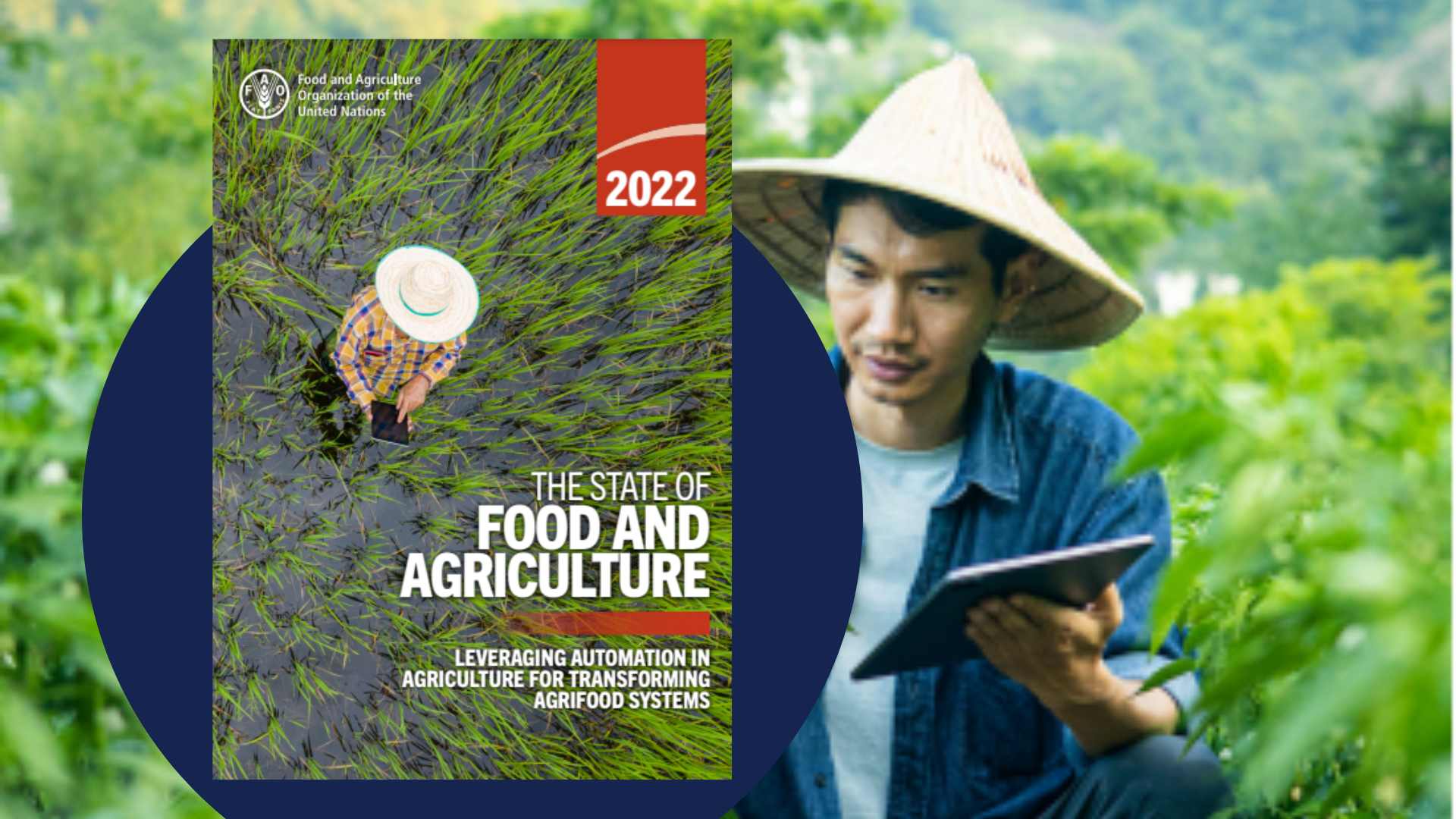Leveraging agricultural automation for transforming agrifood systems: Flagship FAO report addresses concerns over job losses and inequality

The 2022 edition of The State of Food and Agriculture (SOFA), one of the flagship reports produced each year by the Food and Agriculture Organization of the United Nations (FAO), looks at how automation in our agrifood systems can contribute to achieving the Sustainable Development Goals and offers recommendations to policy makers on how to maximize the benefits and minimize the risks.
Automation has been shaping world agriculture since the early twentieth century. Motorized mechanization has brought significant benefits in terms of improved productivity, reduced drudgery and more efficient allocation of labour, but also some negative environmental impacts. More recently, a new generation of digital agricultural automation technologies has appeared, with the potential to further enhance productivity, as well as resilience, while also addressing the environmental sustainability challenges driven by past mechanization.
The State of Food and Agriculture 2022 looks into the drivers of agricultural automation, including the more recent digital technologies. Based on 27 case studies, the report analyses the business case for adoption of digital automation technologies in different agricultural production systems across the world. It identifies several barriers preventing inclusive adoption of these technologies, particularly by small-scale producers. Key barriers are low digital literacy and lack of an enabling infrastructure, such as connectivity and access to electricity, in addition to financial constraints. Based on the analysis, the publication suggests policies to ensure that disadvantaged groups in developing regions can benefit from agricultural automation and that automation contributes to sustainable and resilient agrifood systems.
About the series
The State of Food and Agriculture, one of FAO’s major annual flagship publications, aims at bringing to a wider audience balanced science-based assessments of important issues in the field of food and agriculture. Each edition of the report contains a comprehensive, yet easily accessible, overview of a selected topic of major relevance for rural and agriculture development and for global food security.












































































































































































































